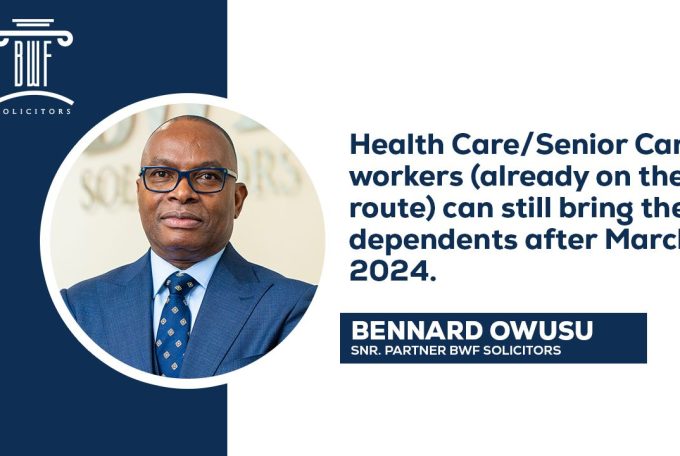What is “continuity of residence” after 31 December 2020 and would your “continuous residence” break if you leave the UK for a long period of time for EU nationals and their non-EU family members?
A “continuous qualifying period” is defined in Appendix EU of the Immigration Rules (the legal source of the Settlement Scheme) as being a period of residence that began before 11 pm on 31 December 2020 and which has not been broken by one of the following:
- Absence(s) from the UK exceeding a total of six months in any 12 months, subject to some exceptions discussed below:
- A prison sentence.
- A deportation, exclusion or removal decision or order (in very general terms)
In an application made after the specified date (31.12.2020) and by the required date, an applicant will be eligible for indefinite leave to enter (ILE) or indefinite leave to remain (ILR) under the scheme.
However, a person with pre-settled Status must be continuously resident in the UK for five years to be eligible for Settled Status later. This means within your five-years qualifying for Settled Status you must be resident in the UK for at least six months in every 12 months.
One longer single absence of up to 12 months is permitted, but only for an important reason such as pregnancy, childbirth, serious illness, study, vocational training or an overseas posting or, in some cases due to the global pandemic. Any absence from the UK because of military service or in Crown service does not break your qualifying residence even if this absence exceeds 12 months.
Only absences of two years or more cause pre-Settled Status to be automatically cancelled.
You will only qualify for Settled Status in the future if you have not been absent for a period of up to two years as your continuous residence in the UK will be broken by the long absence. If you are not eligible for Settled Status because you broke your continuous residence, you will be expected to leave the UK before your pre-Settled Status expires unless you can apply for a different type of UK visa.
It should be noted that the six-month limit is not limited to a single lengthy period outside the UK. It also applies to multiple trips totalling six months together (cumulative).
The rules refer to absence(s) during “any 12-month period”. This means the Home Office will not just be looking at travel during a calendar year. It instead considers a “rolling” period of 12 months. This means applicants who travel frequently will need to keep a very close eye on their travel.
Thirdly, such absences are only relevant to the “qualifying period” relied upon. Once the five-year qualifying period is complete, an applicant will only lose the right to apply for settled status if they spend five years or more outside the UK (a so-called “supervening event”).
For those who have stayed outside the UK for up to 2 years, there will be no immediate effect on the validity of their pre-settled status provided they do not remain outside the UK for a continuous period of two years or more. However, the break in the continuity of their residence will mean that they will not qualify when they come to apply for settled status. Once their pre-settled status is due to expire, they will either need to leave the UK or apply for further permission to stay in the UK under an alternative immigration category if they qualify for one.
Those EEA nationals and the Non-EEA Family members who have acquired a right of permanent residence in the UK under EU law will not be affected, unless by the time they apply under the scheme they have been absent from the UK for a continuous period of five years. They must also still ensure they apply by 30 June 2021 which is the “Grace Period”.
Bennard Owusu, Senior Partner at BWF Solicitors, is qualified as a Barrister in Ghana , and Solicitor to the Senior courts of England and Wales. He regularly writes Opinions and advises Local Authorities; Solicitors and has represented clients in Family and Immigration cases where the main issues are aspects of Ghanaian Law Usages and Practices; Marriages; Children Proceedings; Inheritance and Reciprocal Agreements.
Some of Bennard’s advice have been reported in English law reports. He recently won the Black British Business Award 2020 in the category of Professional Services Senior Leader of the year.
Bennard also represents clients in the purchase of Real Estate in Ghana, conducts due diligence on property acquisition and reviews Sales and Purchase Agreement and Indentures.






